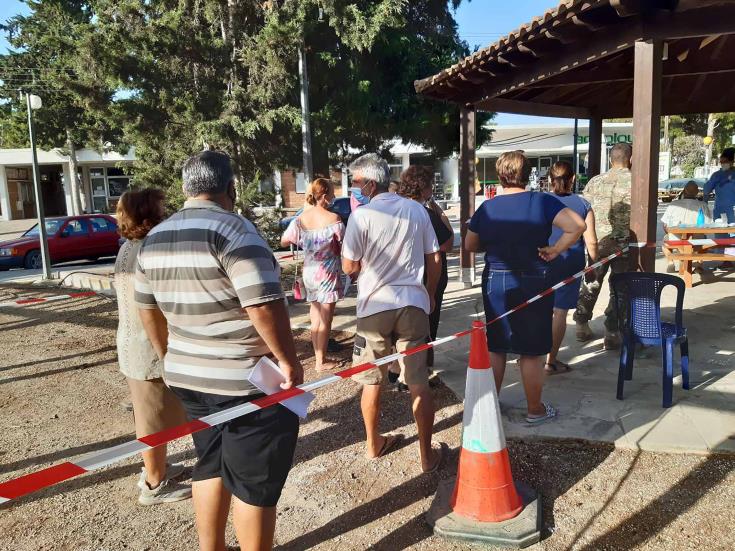If residents of Achna village do not get tested for COVID-19 as instructed or declare their close contacts, the only way to control the spread of coronavirus is a local lockdown, a government scientist warned.
Virologist and Health Ministry advisor on COVID, Peter Karayiannis told the Cyprus News Agency (CNA) the situation is very dangerous as the virus can spread to other areas.
Karayiannis called on the residents of Achna, in the Famagusta district, to behave responsibly and cooperate because the situation is critical.
He said that all contacts of confirmed cases need to be traced to prevent the spread of the virus.
Achna community leader Nicos Vasilas said residents knowing they were a close contacted of someone who contracted the virus were not going to get tested.
He said 500 random tests in the village had not found any positive cases, despite there being a spike at the local football club.
Currently, the virus is spreading among the contacts of football players and staff of Ethnikos Achnas FC while there is also a cluster growing at ASIL football club in Larnaca.
“Therefore, we need to thoroughly try to trace all the contacts of the confirmed cases to prevent further spreading of the virus”.
COVID-19 has also spread to Anagennisi Dherynias football club as well, also in the Famagusta district.
On the transmission of the virus to a pupil in a primary school in Achna, Karayiannis stressed the need for protective masks to be worn in primary schools as well.
Valentinos Sylvestros, who heads the team responsible for tracing the contacts of COVID-19 cases, said that most of the infections during the last 15 days were detected in Larnaca and Famagusta.
He noted that the tracing process becomes even more difficult because people are refusing to name their close contacts.
This does not only apply to Achna residents but is a general phenomenon, he said.
“We had also cases in Limassol where people did not give information.”
The contact tracing team will submit a recommendation to the Health Ministry to launch targeted random tests for the population.










